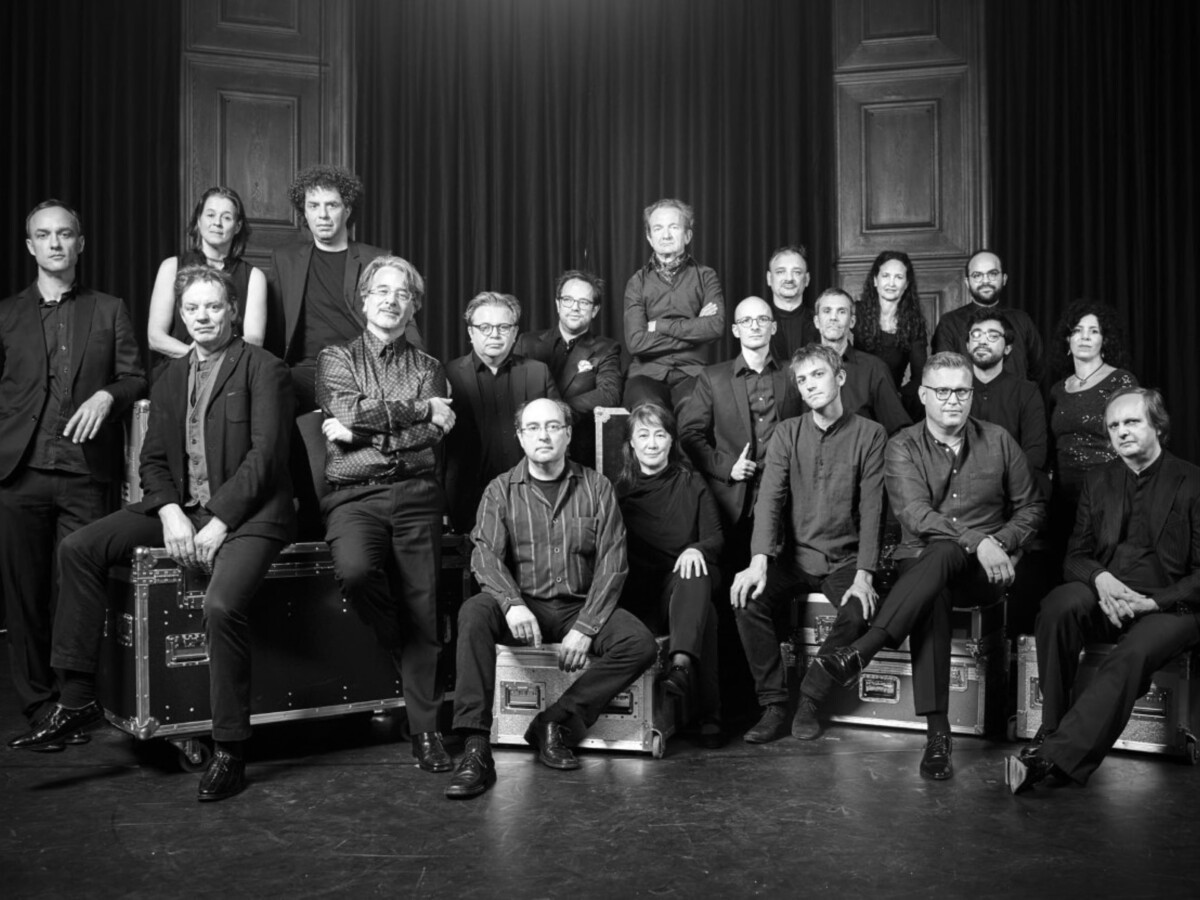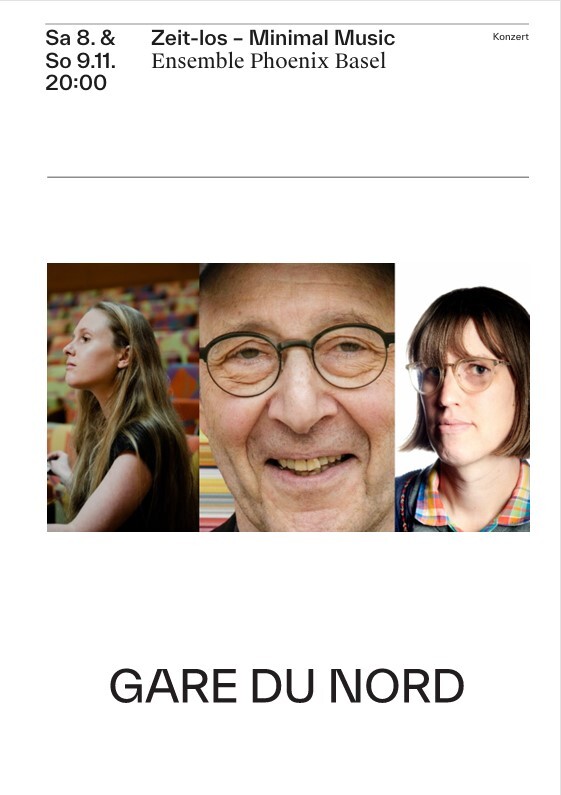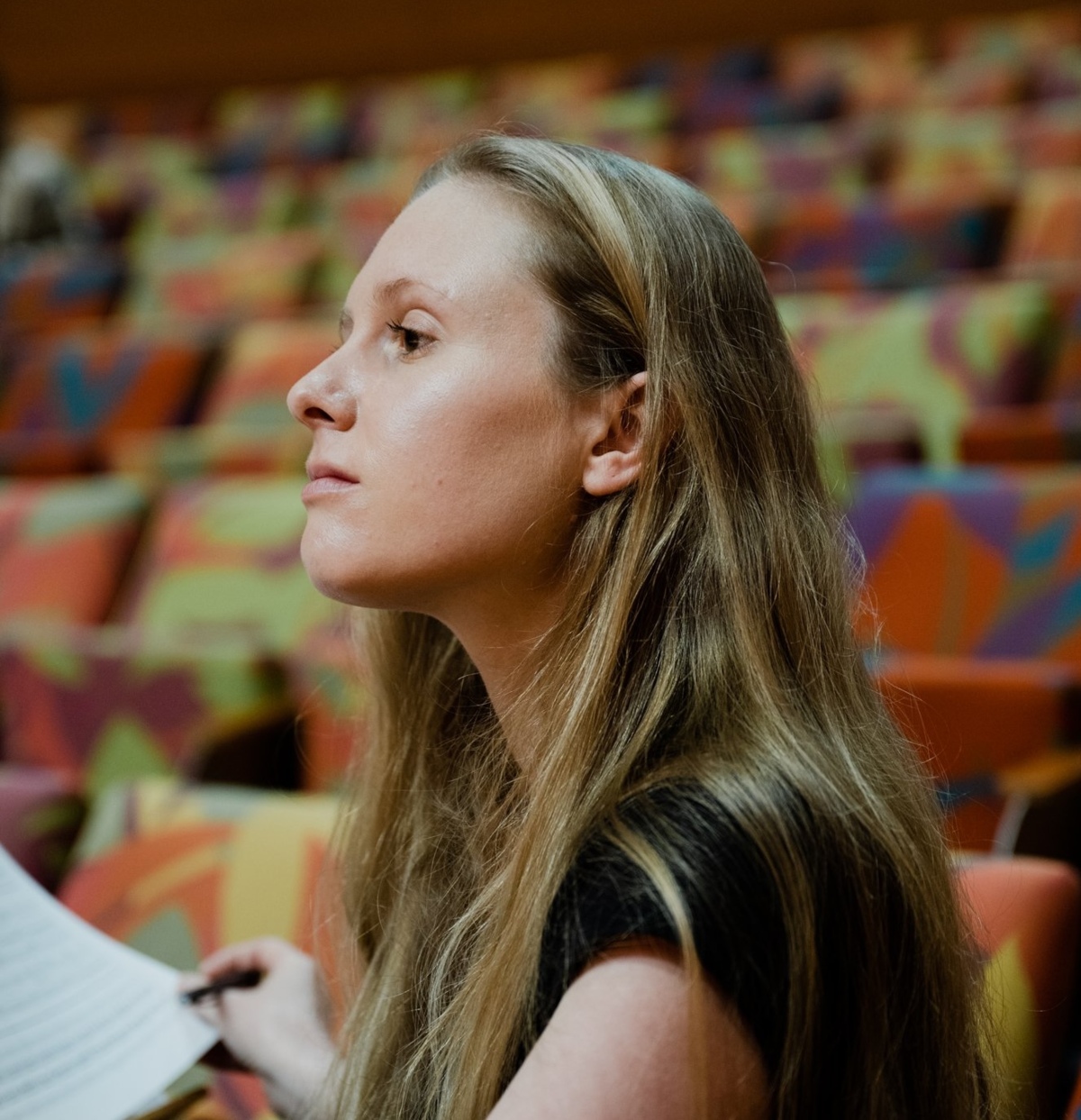Zeit-los – Minimal Music
Ensemble Phoenix Basel
Repetition, patterns and the interplay of temporal structures form the cornerstones of human perception and communication, and are also responsible for the success and popularity of the «Minimal Music» movement, which explicitly addresses this phenomenon.
«Minimal Music» emerged as a reaction to the highly complex serial music of Karlheinz Stockhausen and Pierre Boulez, which developed from Arnold Schoenberg's twelve-tone technique. It mostly uses simple melodies and modal harmonies, with the focus on rhythmic complexity and tonal diversity.
American composer Steve Reich is one of the founders of «Minimal Music», a genre he has had a decisive influence on for over 50 years. Characteristic of this genre are gradually changing rhythmic patterns, which also define the style of Balinese gamelan music.
Hypnotically repetitive sounds, innovative rhythms and harmonious structures in Reich's masterpiece «Double Sextet» (2007) explore the boundaries between space and time and inevitably captivate all listeners. In this work, two identical sextet formations face each other, each consisting of two woodwind instruments (flute and clarinet), two string instruments (violin and violoncello), two vibraphones and two pianos. Reich first realised the idea of a dialogue between a live instrument and a pre-produced sound source recorded with the same instrument and similar musical material in 1967 with «Violin Phase»and continued to develop it throughout his life. In this group of works, there is the alternative option of replacing the tape with live instruments.
Until 2021, American composer and percussionist Sarah Hennies composed exclusively solo and chamber music works, the interplay of which was coordinated by a timecode. With the desire to use a conductor instead of a stopwatch, the Talea Ensemble commissioned Hennies to write a new composition in 2021. Sarah Hennies writes about the creation of this composition: «Clock Dies» has been the first piece where I»ve thought, «Let's see if I can do chamber music». In «Clock Dies», Hennies explores the individual perception of time and the relationship between sound and silence, understanding time as a non-linear concept between music, everyday noises, moments of silence, «contemplation» and «listening within oneself».
During a stay on the island of Itaparica in the Baía de Todos-os-Santos (All Saints Bay) near Salvador de Bahia (Brazil), American composer and environmental activist Gabriella Smith was inspired by the sound of the sea during the tides (Brazilian «maré»), the sound of the wind and birdsong. In «maré», she pours gentle waves and pulsating currents into musical form, creating a sensual and meaningful homage to the eternal recurrence of the sea, the beauty and inner power of water, which speaks from every note. Her music is less influenced by the pulsating rhythms of minimalists such as Steve Reich or Philip Glass than by the soundscapes of Charlemagne Palestine or Phill Niblocks.
An evening of «Minimal Music» in its purest form for eyes, ears, mind and body.
- With
Jürg Henneberger (musical direction); Christoph Bösch, Josef Feichter (flute); Toshiko Sakakibara, Manfred Spitaler (clarinet); Nenad Marković (trumpet); Friedemann Treiber, Daniel Hauptmann (violin); Fabio Marano (viola); Stéphanie Meyer, Benedikt Böhlen (violoncello); Daniel Stalder, João Pacheco (drums); Kirill Zvegintsov, Samuel Wettstein (piano)
- Program
Sarah Hennies (*1979): «Clock Dies» (2021) for 8 instruments
Gabriella Smith (*1991): «Maré» (2017) for 6 instruments
Steve Reich (*1936): «Double Sextet» (2007) for 12 instruments- Info
7:00 p.m. Concert introduction with Jürg Henneberger
- Duration
90 minutes, with break
- Prices
CHF 35.-/25.-/15.- (free choice at the box office or in advance)
Free admission applies to persons with residence permit N, F or S. / CHF 5.- students of the Hochschule für Musik FHNW and the Musicology Seminar of the University of Basel / CHF 10.- members Colourkey, KulturLegi and children under 12 years.- Links
→ ensemble-phoenix.ch
→ gabriellasmith.com
→ sarah-hennies.com
→ stevereich.com




